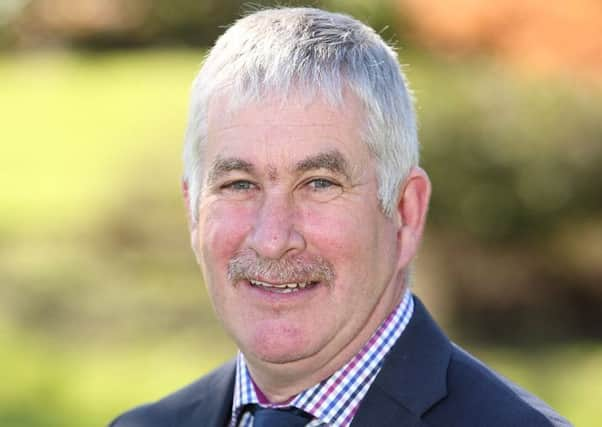Brexit tops the agenda as Union and IFA meet


UFU deputy president, Victor Chestnutt said: “Given that the farmers in the south are our closest neighbours, understandably there are common concerns that will affect everyone on this island. Perhaps the most prominent issue at the minute is the impact of Brexit.”
Mr Chestnutt went on to highlight that, historically. there have been strong links between the farming industries north and south of the border and that over the years this trade has been ‘hugely important’ in developing agri-food into the largest industry in each of the respective economies.
Advertisement
Hide AdAdvertisement
Hide Ad“Any future trade negotiations between the UK and the EU must take this into consideration,” he added.
The cross border meeting also gave representatives from both organisations an opportunity to discuss key areas of the Rural Development Programme, in particular concerns in relation to the areas of natural constraint (ANC) designation.
“I think it is clear that the EU requirement to designate an ANC is yet another example of how a one size fits all policy does not work in practise,” said Mr Chestnutt.
“The ANC maps that have been drafted by DAERA do not accurately reflect the true areas of natural constraint and this goes against the very principles of the EU regulation, which is to define disadvantaged areas that require additional support.
Advertisement
Hide AdAdvertisement
Hide Ad“We don’t believe DAERA is entirely to blame for this, such is the complexity of this process, however in the context of the circumstances surrounding Brexit we would now strongly question whether this requirement should be relevant anymore.”
He continued: “Farmers have become accustomed to the existing severely disadvantaged areas map and we see no reason to change. This is an early opportunity for the DAERA Minister to make a break from EU regulations by challenging the Commission on this requirement.
“Pushing for a derogation or at worst seeking an extension on the date we are due to designate by would reduce the burden for both farmers and DAERA, allowing us to concentrate on more important priorities such as trade.”
At the meeting the UFU also discussed the farm investment scheme (TAMS) that is operating in the Republic of Ireland.
Advertisement
Hide AdAdvertisement
Hide AdFencing has been a key addition to TAMS, such is the appetite to improve livestock and grassland management in the south. Chestnutt noted that this appetite exists amongst farmers in Northern Ireland as well.
“Farmers in Northern Ireland have demonstrated a keen interest to include fencing in the Farm Business Investment Scheme,” he explained.
“We now need DAERA to make sure that this option is made available. A fencing scheme which delivers appropriate levels of funding for long lasting fencing products is essential if we are to help make our livestock sector more sustainable.”